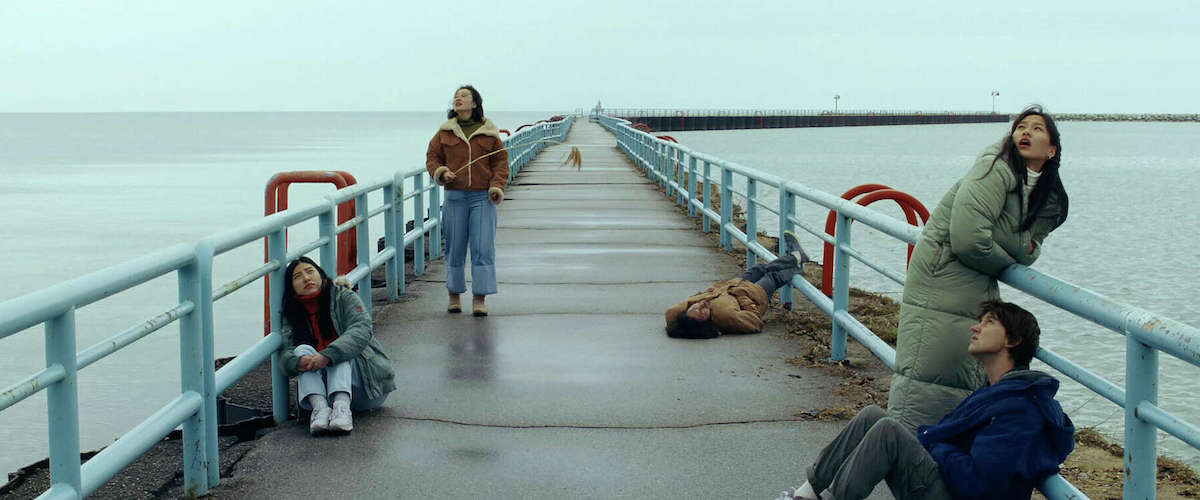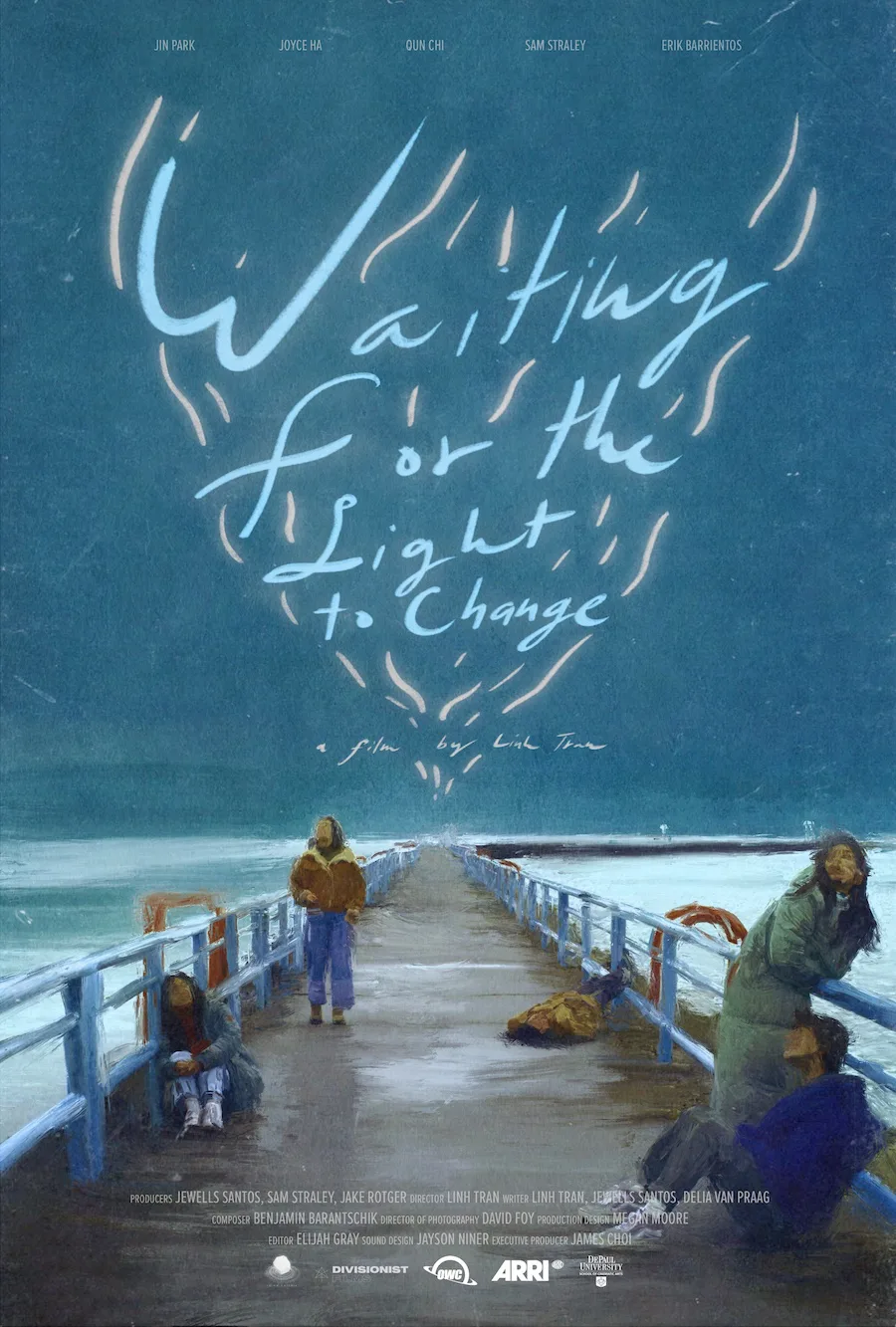The twentysomething drama “Waiting for the Light to Change” is an impressive debut from co-writer/director Linh Tran. Set in a Michigan lake house during winter, it’s a minimalist youth drama with a lakefront atmosphere, a controlled, at times minimalist directorial style, and a cast that approaches the material with disarming naturalism.
Tran distributes her attention pretty evenly among her five characters. The closest thing to a lead is the 25-year-old Amy (Jin Park), who just went through a dramatic weight loss but seems uncomfortable with people noticing and complimenting her on it, probably because she feels like a failure in other areas of life. She made it through grad school but hasn’t found a job yet.
Meanwhile, Amy’s longtime friend Kim (Joyce Ha)—a big success in life, or so it seems—has brought along her boyfriend Jay (Sam Straley). The three knew each other in high school. Amy always had a bit of a thing for Jay, and we can tell from every interaction between them that there’s a spark there that could erupt if they aren’t careful. There’s tension and unhappiness between Kim and Jay—as is the case with every configuration of characters, who all hide, elide, and skew their own stories. We get more of a vibe than a bundle of specifics. The group is rounded out by Amy’s cousin Lin (Qun Chi), an exchange student from the old country, and another friend named Alex (Erik Barrientos), a major stoner who constantly urges the others to get baked with him and takes a shine to Amy almost immediately.
The film falls short of its considerable ambitions, mainly at the script level. Tran and her co-writers, Jewells Santos and Delia van Praag, have the right instincts to let the performances and images carry the burden of meaning. Still, much of the dialogue is too bluntly declarative to pass muster as cryptic, insinuating, or obfuscatory, but not detailed enough to push the film in another direction, perhaps towards something more florid or dense or “unreal.” It’s stranded in the middle.
The performances, however, are all impeccable. Tran’s direction complements them beautifully, drawing on minimalist filmmakers and some of the greatest hits of “slow cinema.” Tran relies on blocking and camera movement to get the viewer’s mind to make connections or simply appreciate the vaguely Northern European brand of emotional and meteorological chillness. Often, the camera will stay fixed in one medium-distance shot and let the action play out (an early scene between Amy and Lin in their shared bedroom is a standout, making both characters feel overwhelmingly real). Other times, it might start on, say, a couple of characters sitting in a field or on a stretch of beach and then move to track other characters while you continue to hear the main dialogue play out without the speakers visible.
The overall impact is reminiscent of Steven Soderbergh’s frank assessment of his own debut film, another twentysomething relationship drama, “sex, lies, and videotape.” On the commentary track for the laserdisc of that movie, he said it was better acted than directed and better directed than written. Considering that the script of that film was good, as is this one’s, and the rest operated at a higher level of skill, the comparison should be considered high praise. Both won many prizes and if all goes well, we’ll see more movies of increasing ambition and assurance from the group behind this one.
On VOD now.




















